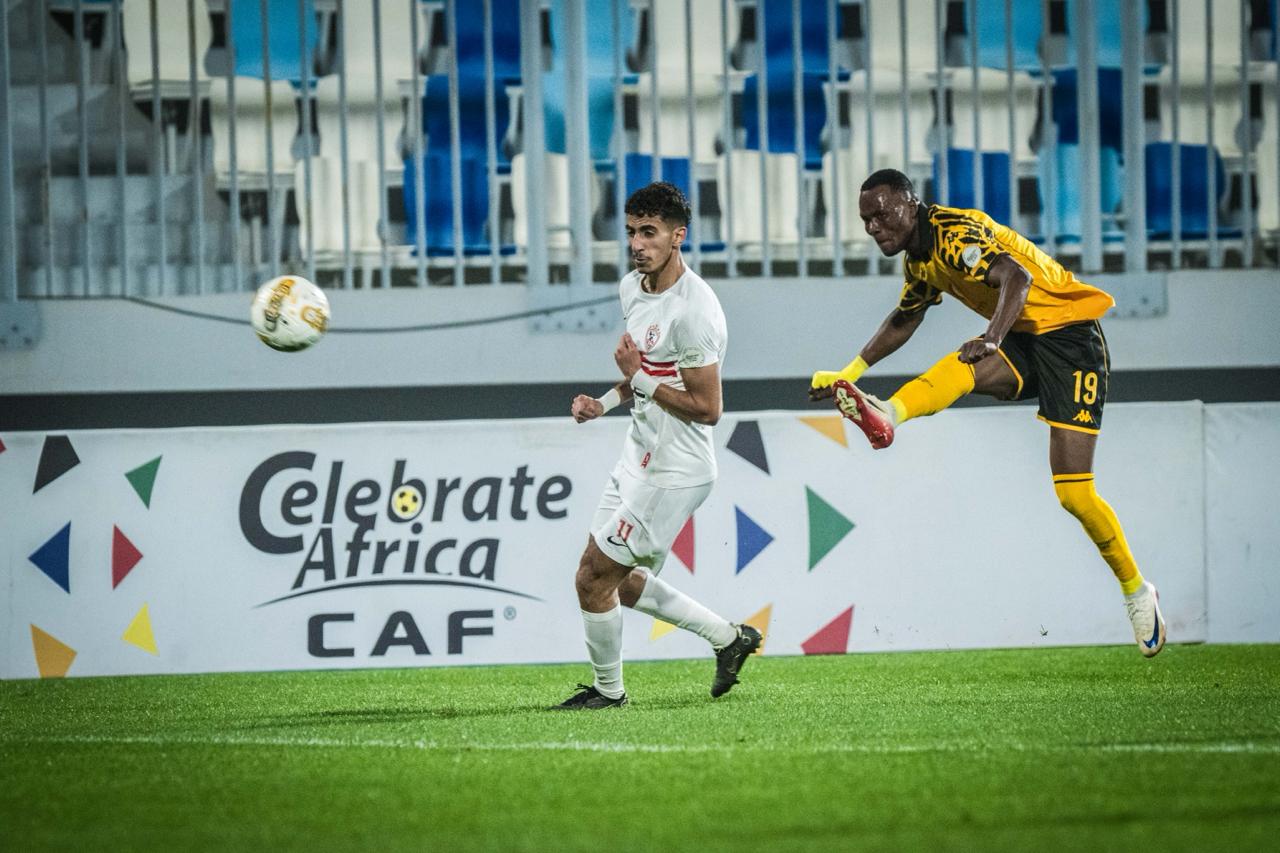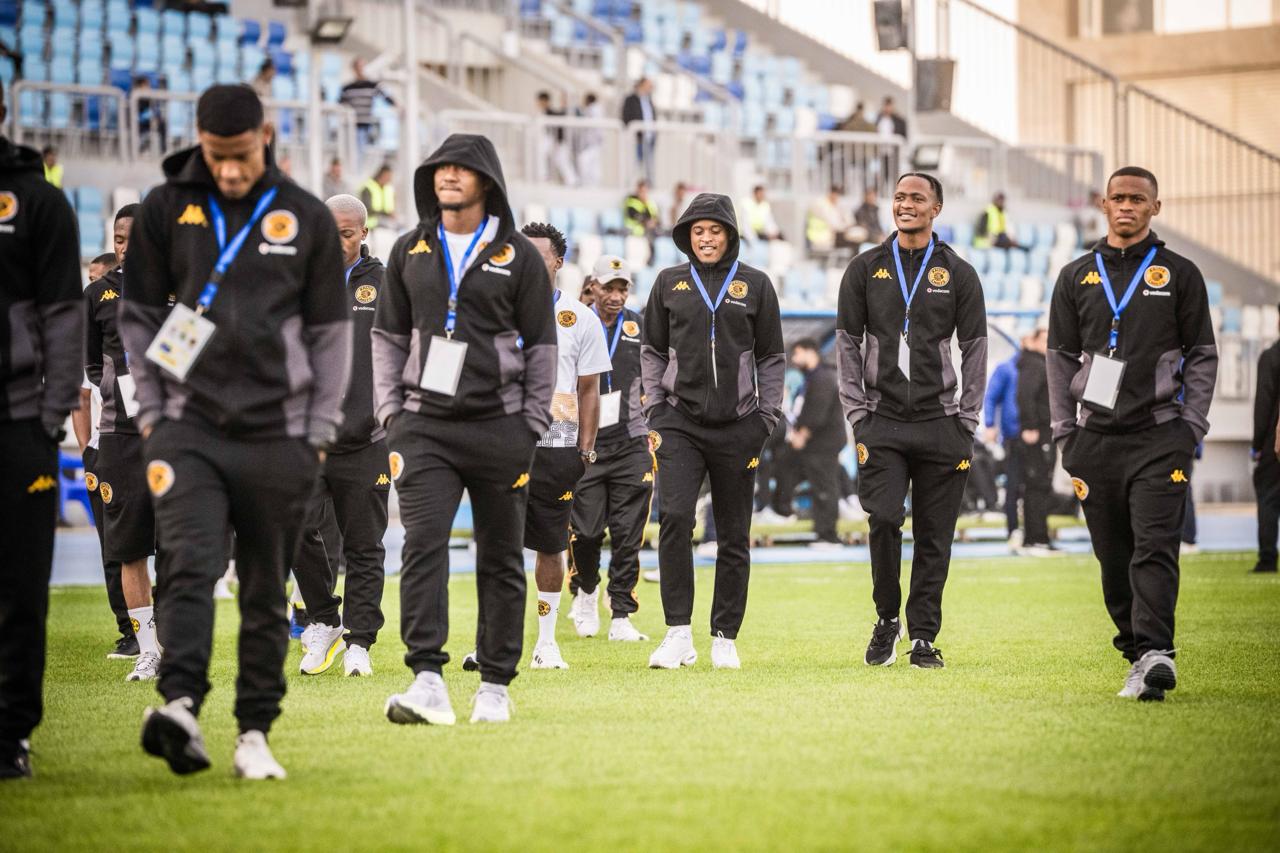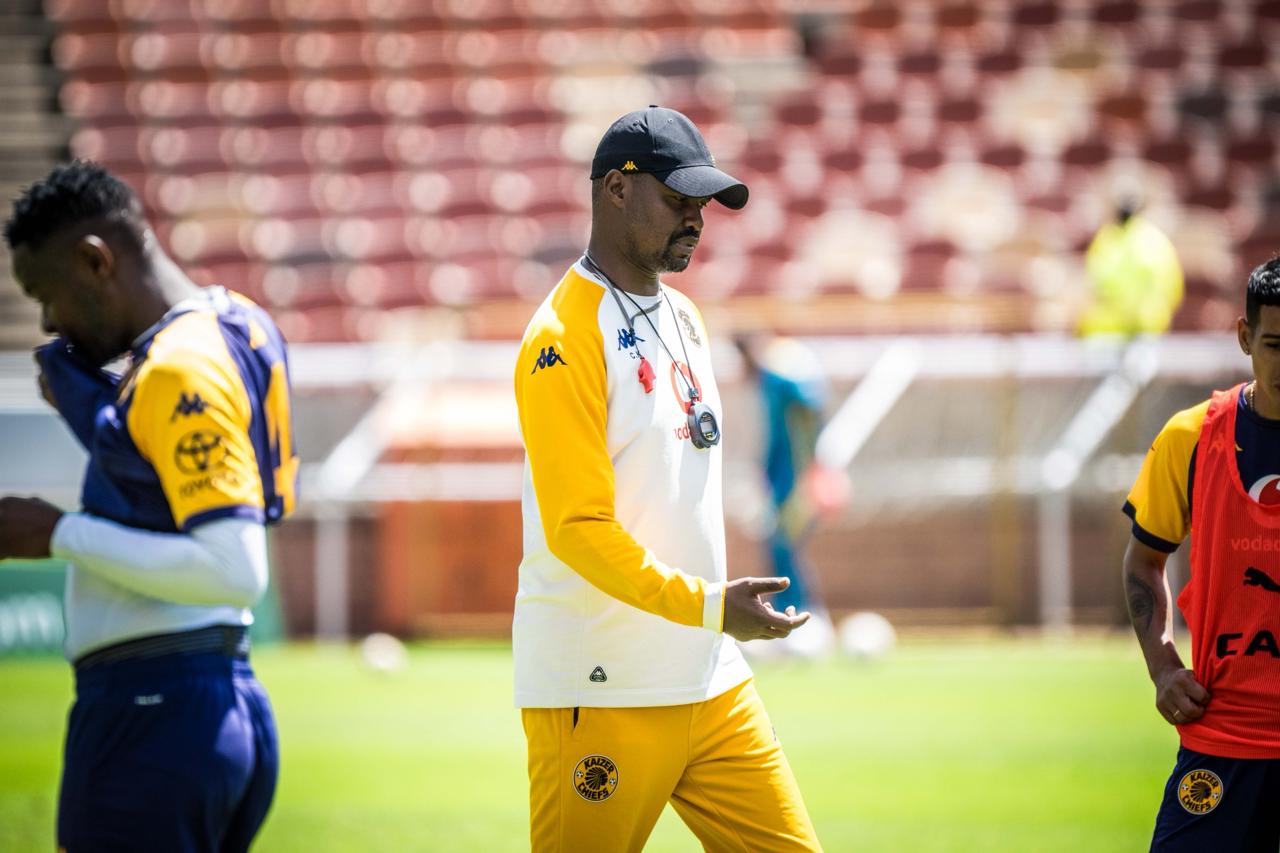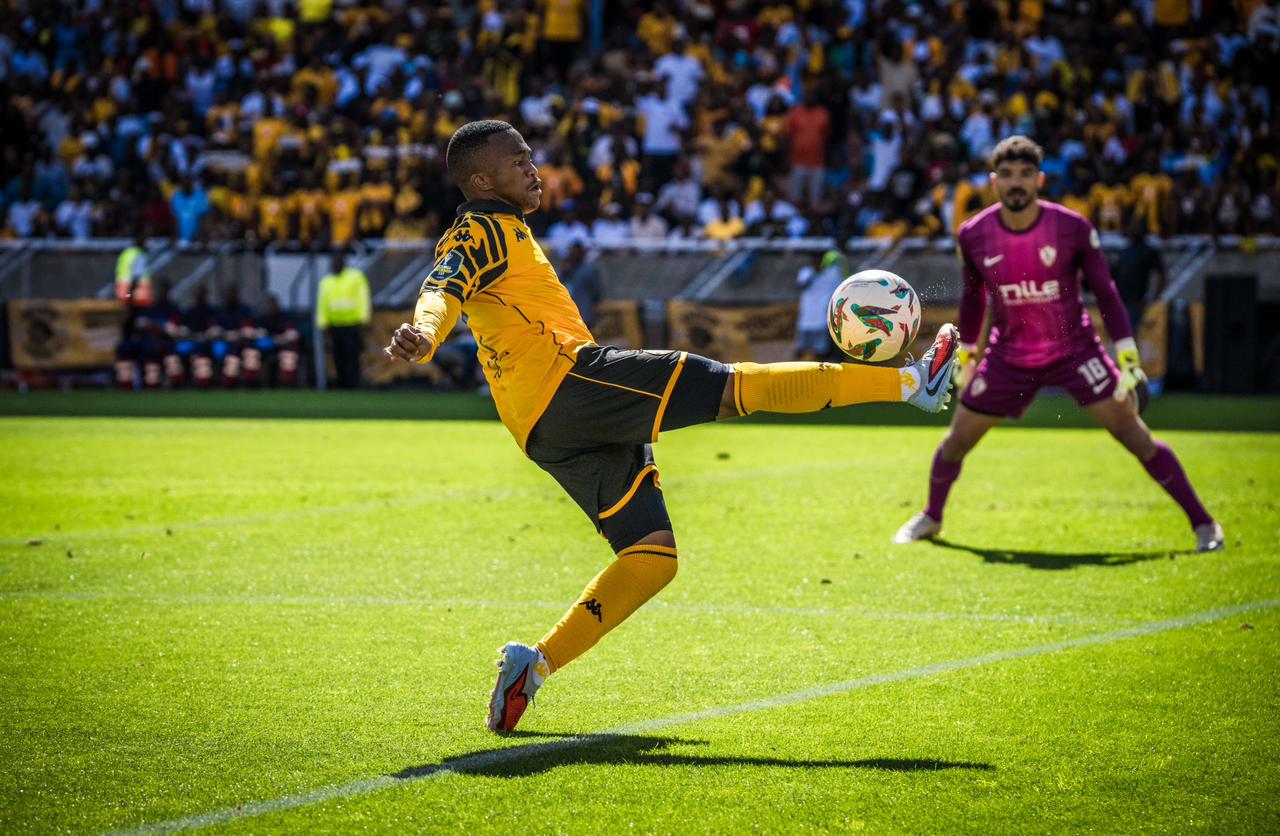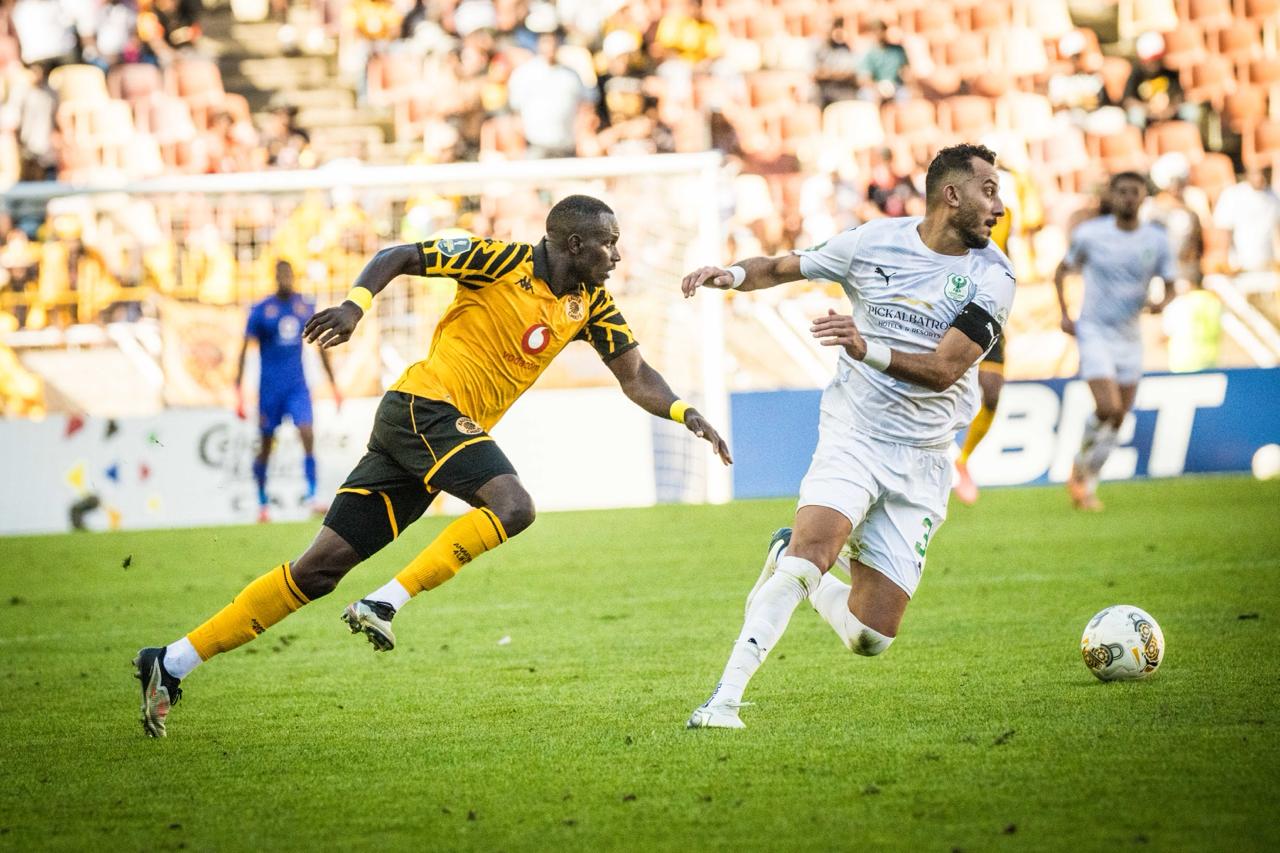Posted in Features, News on Jul 07, 2017.

Dlamini was probably one of the best - if not the best - strikers Amakhosi ever had, playing for the club from 1970 until 1976 and leaving after the Soweto uprising.
He had a lovely personality, always positive. He enjoyed sharing memories about his time at Chiefs, many with an amusing storyline.
The 74-year-old was affectionately known as ‘Monkey Jive’ because of the way he used upper body movements to get past his opponent. The crowd went wild when Dlamini did that.
“I could jive,” he explained his movements. “My body movements confused the opponents and they would often just fall to the ground as a result.” After telling this story, ‘Bizzah’ himself laughed the loudest.
He had a very good understanding on the field with Kaizer ‘Chincha Guluva’ Motaung, with many of Bizzah’s goals coming after a through ball deep from the Chiefs founder and Chairman.
“Kaizer had so much skill,” Dlamini reflected. “I often ran past him when he was making his usual turn when in ball possession. At the right moment, he would back-heel the ball to me while I was getting behind the opponent’s defence. An easy goal was the result.
“I always told my teammates, ‘just knock the ball behind the opponent’s defence and I will get there and score’.”
He was fast, skilful and had the ability to pop up in the opponent’s box at the right place and the right time to put the ball in the back of the net.
About his amazing pace, ‘Bizzah’ used to boast: “I ran the 100 metres in 9,9 seconds. That’s what top sprinters do.”
Dlamini was part of that great Chiefs side that beat Orlando Pirates 7-3 in a Champion of Champions match in early 1972, coming back from 2-0 down. It’s still Amakhosi’s biggest win over their Soweto rivals.
The striker was on song that season, netting 22 times during the season, 14 league and eight cup goals. For example, Dlamini scored four times in a Life Challenge cup game against Bethlehem Black Terrors (6-1 win).
However, beating the Buccaneers was not always easy in those days. “We always got warned not to get into a taxi the following day, as there might be an angry Pirates supporter in the taxi, willing to give you a klap or do something even worse.”
Dlamini was part of the Chiefs side that won the club’s first league title in 1974. During his years as a Glamour Boy, he also won numerous cup trophies.
‘Bizzah’ would rave about that formidable attack Chiefs had in the seventies. It consisted of three forwards, Herman ‘Pelé’ Blaschke, Dlamini and Abednigo ‘Shaka’ Ngcobo. Meanwhile, operating behind this trio were the likes of Patrick ‘Ace’ Ntsoelengoe and Kaizer ‘Chincha Guluva’ Motaung.
Amakhosi’s side in those years was something unique explains another soccer legend, Smiley Moosa: “That side can easily be compared with Barcelona’s present team with Messi, Suárez and Neymar. “The trio Bizzah, Kaizer and Ace were unbelievable. The football they played was a joy to watch. We will probably never see anything like that again.”
Dlamini also loved to talk about his magnificent goal scored against Pirates: “I dribbled their whole defence. Their defenders were all lying on the ground, including goalkeeper Patson Banda. Then I stopped the ball on the goalline and waited a bit before back-heeling the ball into the goal.”
He added with a wink: “Kaizer strongly reprimanded me the next day for not finishing the ball directly.”
“You will be fined next time you do that,” Motaung told Dlamini.
His best goal, he felt, came in a match against Golden Arrows in Durban. “The ball was in the air and I scored with a bicycle kick. I was completely horizontal at an incredible height.”
After the goal, Arrows’ goalkeeper ‘Black Cate’ Cele came to ‘Bizzah’ and said: “You made me look like a papaya.”
One of his proudest moments was being selected for the South African Blacks XI against a South African Whites XI in 1974. It was the first time that a representative white team took on a black representative team with official sanction. “That was a special moment, especially for us blacks,” the former Chiefs striker reflected on that game, as it took place during the dark days of the apartheid regime.
When asked to compare himself to a modern-day player, Dlamini would say full of confidence: “Christiano Ronaldo. When I look at his actions, I could do those things. Unfortunately, I was born in the wrong era.”
However, he never spoke with bitterness about not having earned the money during his playing days that footballers get paid in recent times.
About what made Chiefs so special, the former striker said: “We are the Glamour Boys! We dressed nice, we behaved ourselves and we were together as players, forming a strong unit.”
Then, he added with a big smile about how it felt to be a Glamour Boy: “We were never without ladies. However, on a serious note, when it came to the game, we always listened to instructions. We were very disciplined on the field.
“Kaizer Chiefs is so successful because of those players of the seventies. We were the best. No other team played the way we did at the time. We left a legacy for others to repeat. We set the standard.”
Before joining Chiefs in 1970, Dlamini played for Sobantu Manchester and Maritzburg City. After his Amakhosi days, he became a coach at various clubs in Durban, including Bush Bucks and AmaZulu, before briefly returning to the Glamour Boys to assist Paul Dolezar (1997-1999).
‘Bizzah’ ran a construction business, Bhabha Contractors.
He continued following every game of the Glamour Boys, usually via television, but when the club played in Durban, Dlamini would make sure he would be there, often proudly wearing a Gold and Black polo.
Dlamini was born on 20 October 1942 and raised in Sobantu Village, outside Pietermaritzburg, but lived most of his life in Durban. He passed away on 30 June 2017. He leaves behind his wife Virginia, five children and seven grandchildren.
[gallery ids="34925,34924,34881,34616"]

